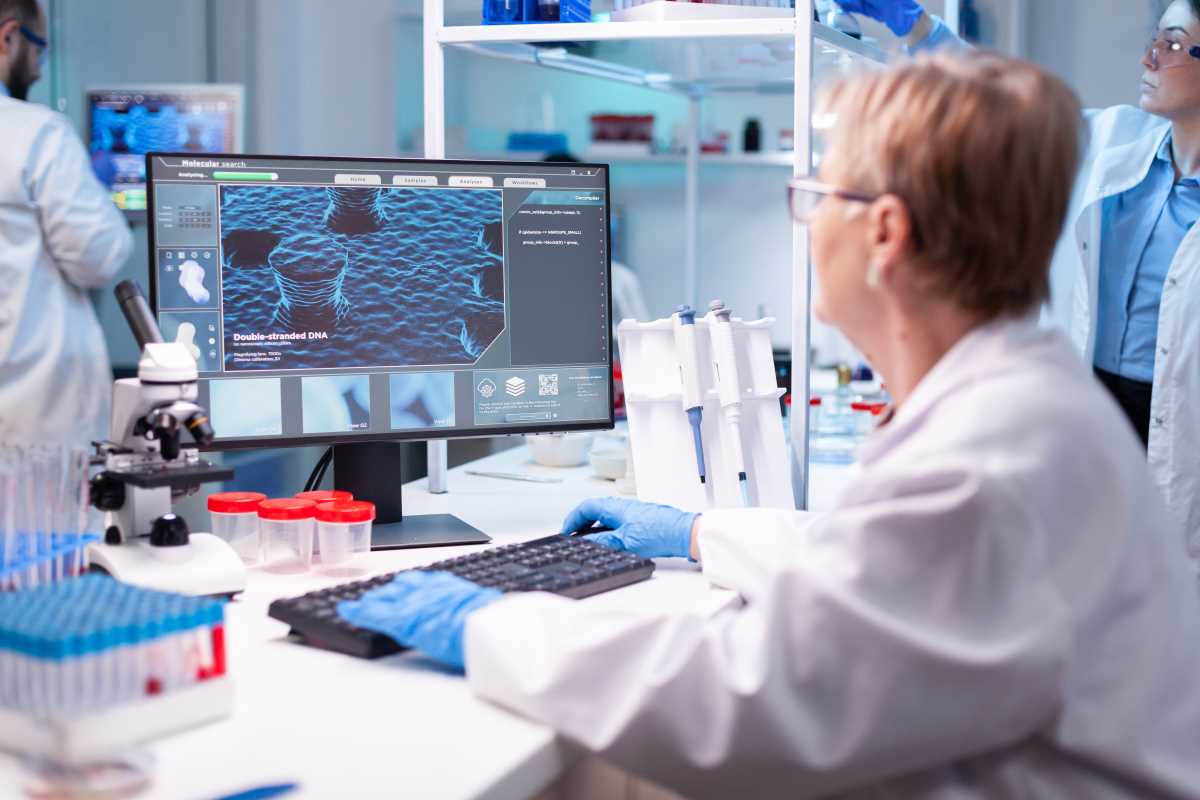The future of food is undergoing a revolutionary transformation, and cellular agriculture researchers are at the forefront of this change. Cellular agriculture, a relatively new and rapidly advancing field, focuses on producing agricultural products through cellular cultures rather than traditional farming methods. This includes lab-grown meat, dairy products, and other animal-based foods created from animal cells in a controlled environment. As the global population continues to grow and concerns over sustainability, animal welfare, and resource scarcity rise, the role of cellular agriculture researchers has never been more critical. These scientists are not just developing new ways to produce food—they are shaping how we will feed ourselves for generations to come.
What is Cellular Agriculture?
Cellular agriculture is an innovative approach to food production that uses biotechnology to create agricultural products without raising and slaughtering animals. The process involves isolating cells from a living organism (often an animal) and nurturing them in a lab setting to grow into tissue that can be used for food. The most well-known application of cellular agriculture is lab-grown meat, where animal cells are cultured to form muscle tissue that mimics traditional meat products.
This technology can revolutionize the food industry by making food production more sustainable, ethical, and efficient. Unlike conventional animal farming, cellular agriculture does not require vast amounts of land, water, or feed, eliminating the need for slaughtering animals. As a result, researchers in this field are at the cutting edge of solving some of the most pressing challenges in food security and sustainability.
The Role of Cellular Agriculture Researchers
Cellular agriculture researchers are the scientists and innovators driving the development of lab-grown food. Their work involves a combination of biology, biotechnology, materials science, and engineering to create cultured products that can replicate the texture, taste, and nutritional value of traditional animal products. These researchers conduct a wide range of experiments and investigations to optimize the processes involved in cellular agriculture, focusing on areas such as cell cultivation, scaling production, and cost reduction.
One of the primary responsibilities of cellular agriculture researchers is to develop and improve the techniques used to culture animal cells. This includes finding the right nutrients and growth factors to feed the cells, determining the optimal conditions for cell growth, and ensuring that the cells develop into the desired tissue types. For example, researchers working on lab-grown meat must ensure that muscle cells develop into fibers that resemble the texture of conventional meat, while researchers in the dairy space need to culture cells that produce milk proteins or fat in a way that mimics the composition of cow’s milk. The work of cellular agriculture researchers often requires multidisciplinary expertise. Researchers must understand cell biology, tissue engineering, genetic modification, and bioprocessing to create viable and scalable products. The ultimate goal is to create foods indistinguishable from their traditional counterparts in taste, texture, and nutritional content while offering cellular agriculture's environmental and ethical benefits.
Addressing Global Challenges
Cellular agriculture research is critical in addressing several global challenges, particularly those related to sustainability, resource efficiency, and animal welfare.
Sustainability and Resource Efficiency
Conventional agriculture, especially animal farming, is one of the leading contributors to environmental degradation. It is responsible for significant greenhouse gas emissions, deforestation, and water pollution. Additionally, raising animals for food requires vast amounts of land, water, and feed. According to the United Nations, livestock farming accounts for nearly 15% of global greenhouse gas emissions. In contrast, cellular agriculture can dramatically reduce these environmental impacts.
Researchers can drastically reduce the need for arable land, water, and other resources by growing food in labs rather than on farms. Culturing cells in a controlled environment can be done with far less land use and without the large-scale emissions associated with traditional farming. This reduction in resource consumption could be pivotal in addressing issues such as land degradation and water scarcity, which are expected to become more pressing as the global population grows.
Animal Welfare
In addition to its environmental benefits, cellular agriculture promises to improve animal welfare. Traditional livestock farming involves raising and slaughtering animals for food, often in conditions that may not be ideal for the animals. Cellular agriculture eliminates the need for slaughter, as food products are created directly from cultured cells. This represents a more ethical approach to food production, especially for those concerned about animal rights.
While lab-grown meat is not yet widely available, research is actively working to make it a mainstream alternative to conventionally produced meat. As cellular agriculture progresses, it can potentially reduce or even eliminate the need for factory farming, where animals are often kept in confined spaces and subjected to inhumane conditions. For those advocating for the humane treatment of animals, this represents a significant step forward in food production.
Feeding a Growing Population
As the global population continues to rise, the demand for food will only increase. Traditional farming methods may struggle to meet the needs of a growing and urbanizing world. Cellular agriculture offers a promising solution by providing an efficient, scalable way to produce food that can keep up with the growing demand. It allows for producing meat, dairy, and other animal products without the inefficiencies and resource demands of traditional farming. By producing food in a controlled, lab-based environment, cellular agriculture can also help mitigate the risks associated with food security, including supply chain disruptions, disease outbreaks in livestock, and climate-related crop failures. It could provide a stable and reliable source of food even in the face of changing environmental conditions.
Challenges in Cellular Agriculture Research
While the potential benefits of cellular agriculture are immense, researchers must still overcome several challenges to bring these innovations to market. One of the main challenges is scalability. Currently, producing lab-grown food on a large scale is expensive and inefficient. Researchers are working to optimize production processes, reduce costs, and scale up the technology to make it commercially viable.
Another challenge is regulatory approval. As with any new food technology, lab-grown food products must undergo rigorous testing and approval before being sold to consumers. Regulatory bodies like the U.S. Food and Drug Administration (FDA) and the European Food Safety Authority (EFSA) must establish clear guidelines and safety standards for cellular agriculture products. This process could take years, and researchers must collaborate with regulators to ensure that lab-grown food is safe and meets consumer expectations.
Finally, public acceptance is another hurdle. Many people are still unfamiliar with lab-grown food, and there may be skepticism or resistance to consuming products not produced through traditional agricultural methods. Cellular agriculture researchers must engage with the public, educate consumers about the benefits of lab-grown food, and address health, safety, and ethics concerns.
The Future of Food: A Career with Impact
As a cellular agriculture researcher, you would be at the forefront of this exciting field, shaping the future of food and tackling some of the world’s most pressing issues. The work is both challenging and rewarding, offering opportunities to make a tangible difference in the world. As technology advances and cellular agriculture becomes more viable, the demand for skilled researchers in this field will only grow.
For those passionate about sustainability, innovation, and creating a more ethical food system, a career in cellular agriculture offers the chance to make a lasting impact. Researchers in this field have the potential to change the way we produce food and help shape a future where food is abundant, sustainable, and humane. Whether working on lab-grown meat, dairy, or other cellular products, your research could play a critical role in feeding the world while preserving the planet for future generations.







